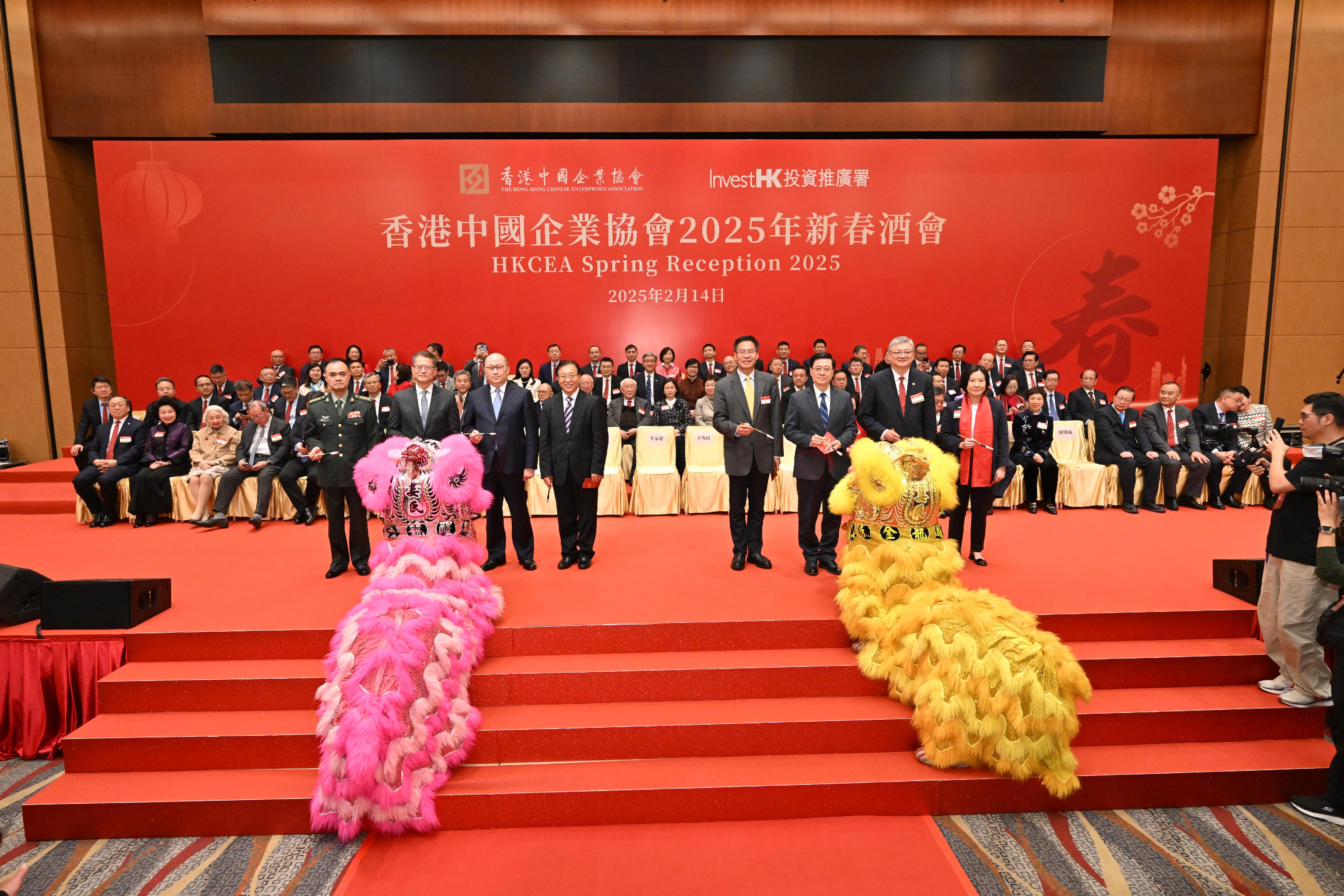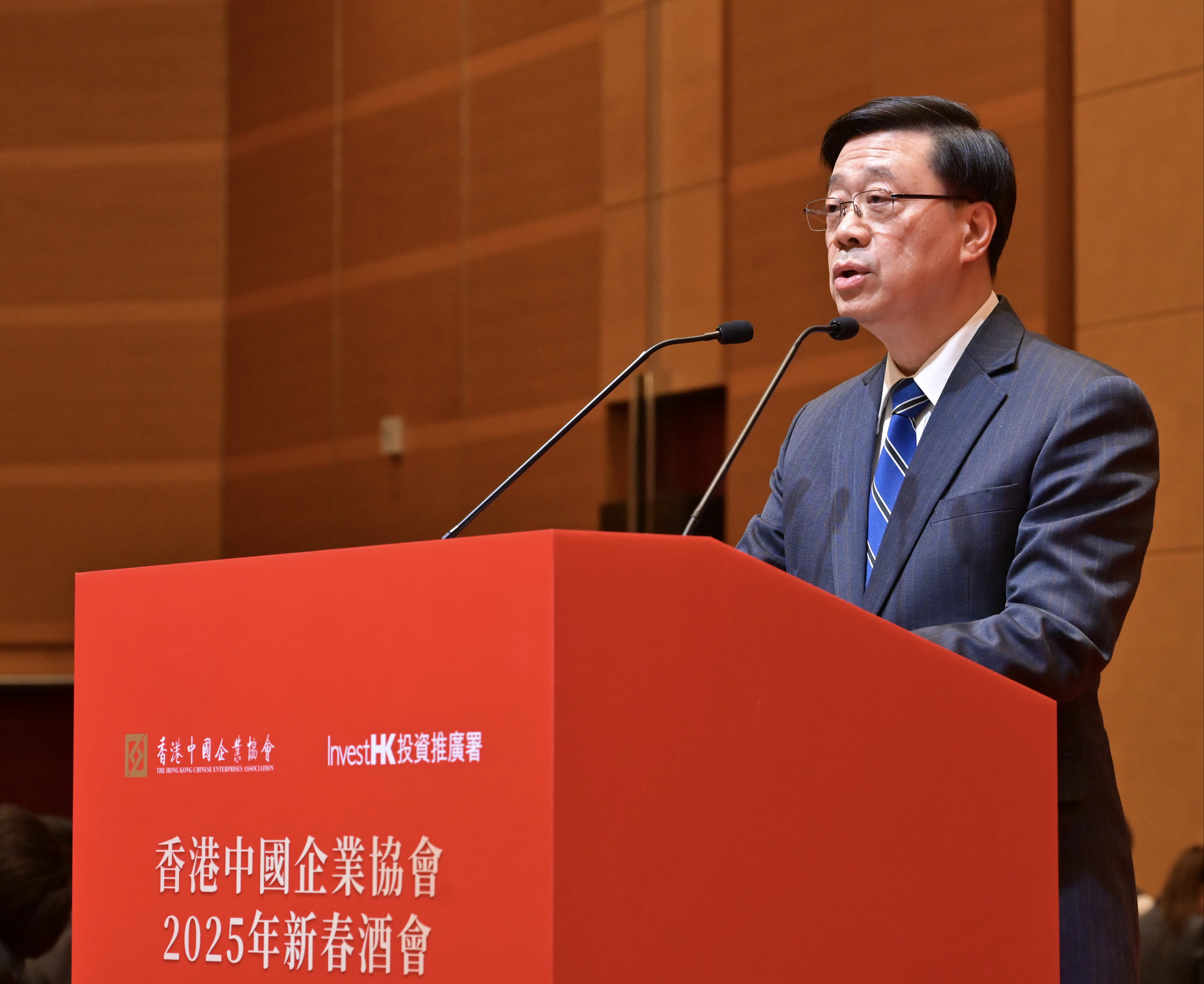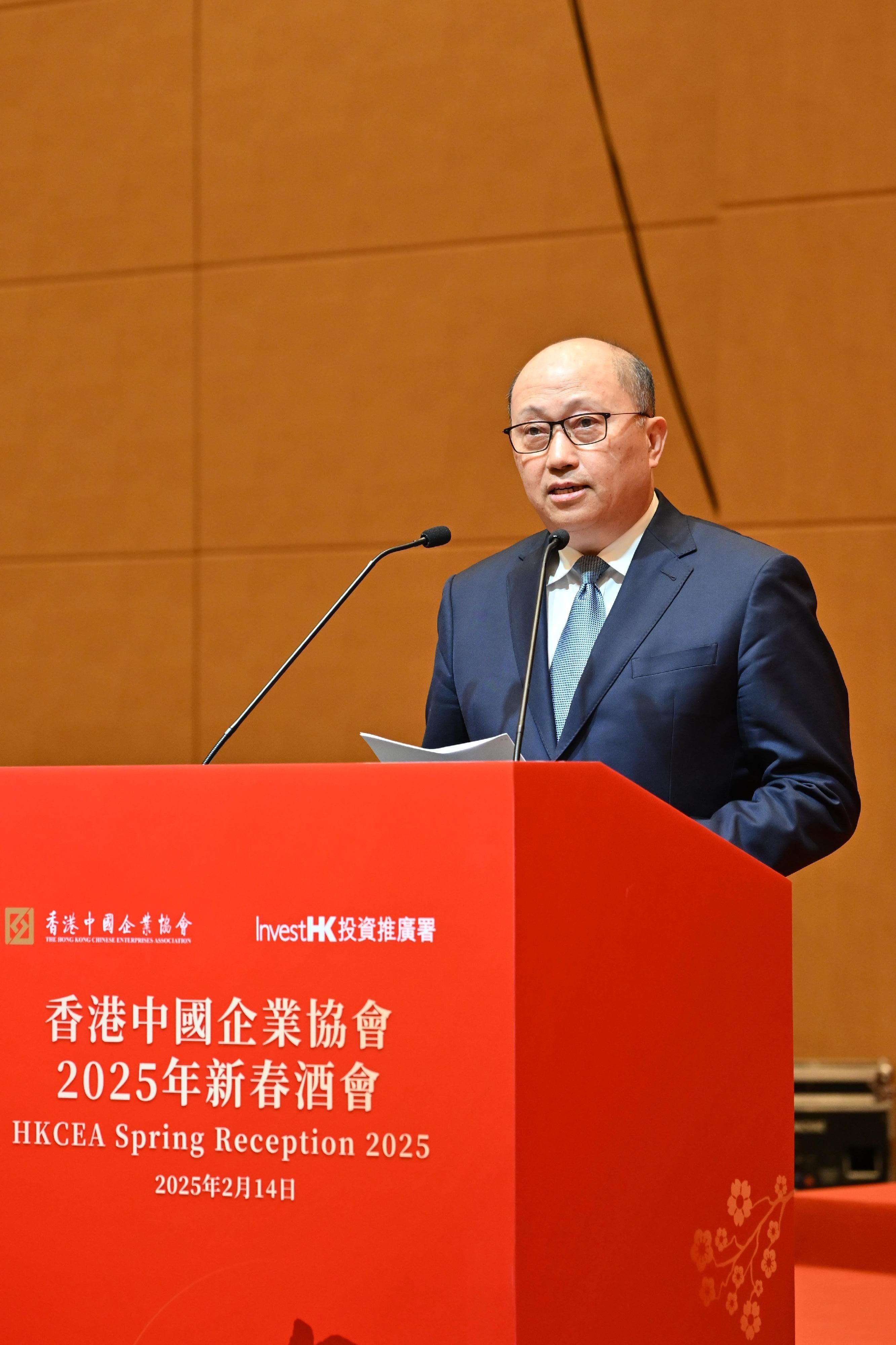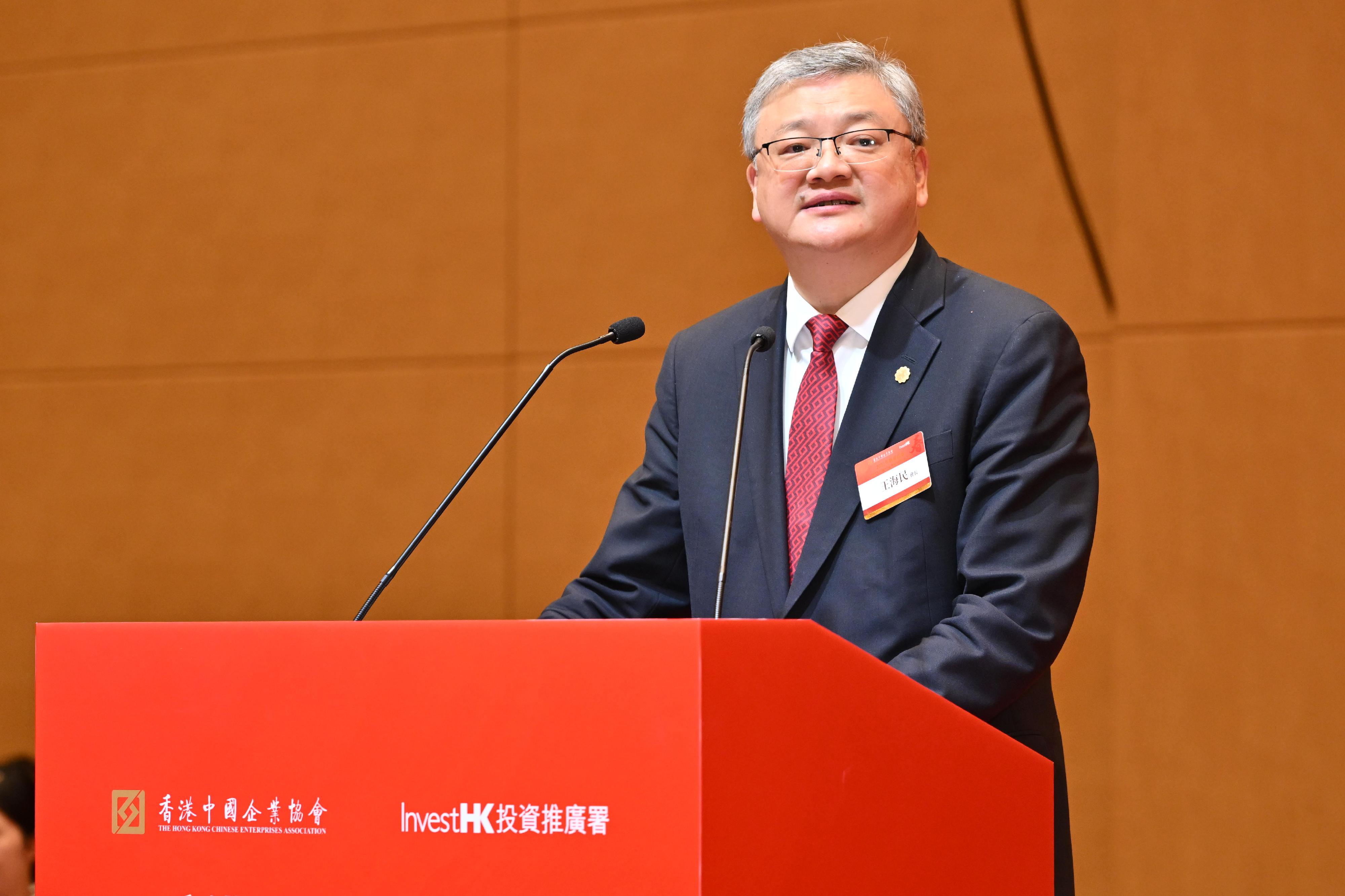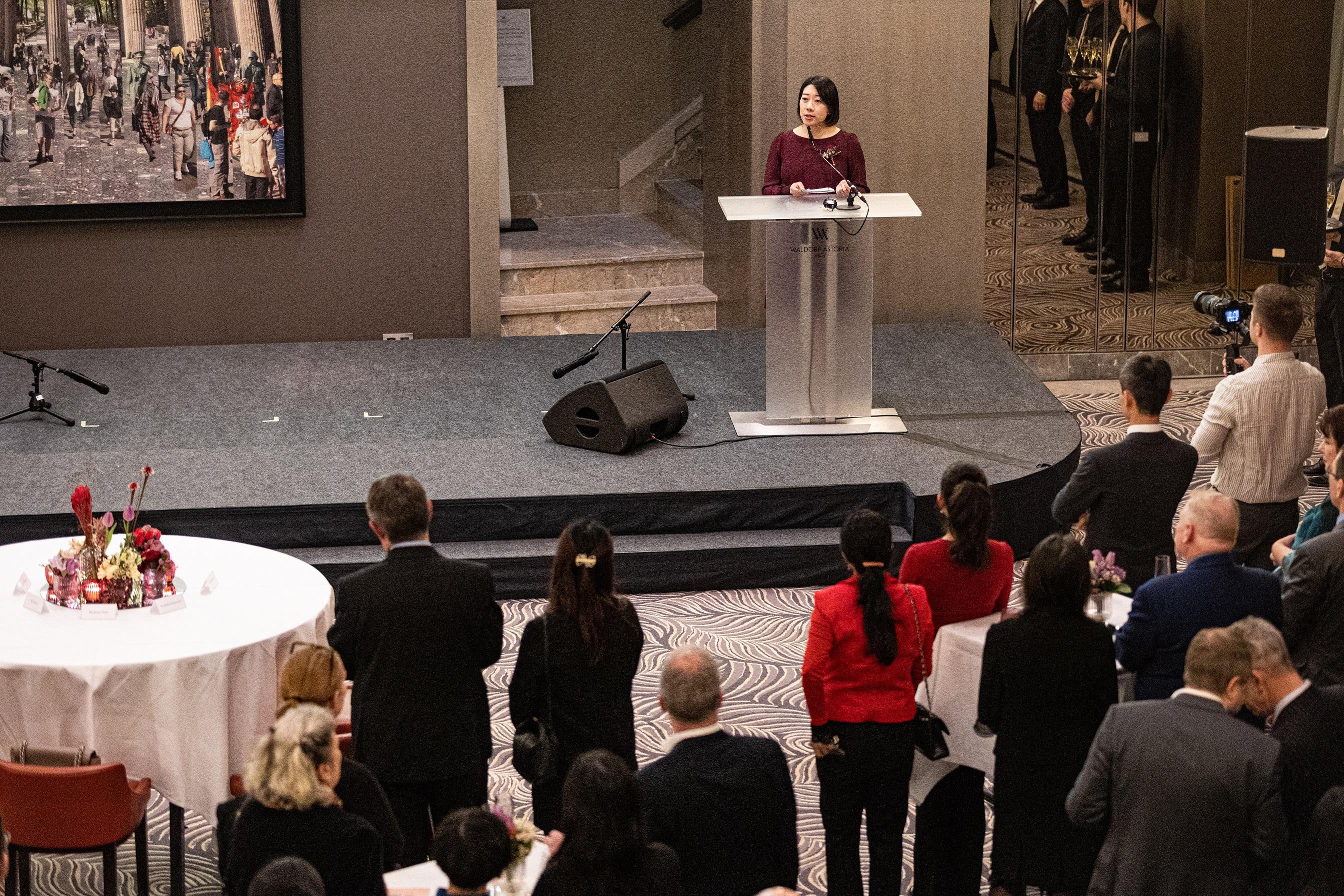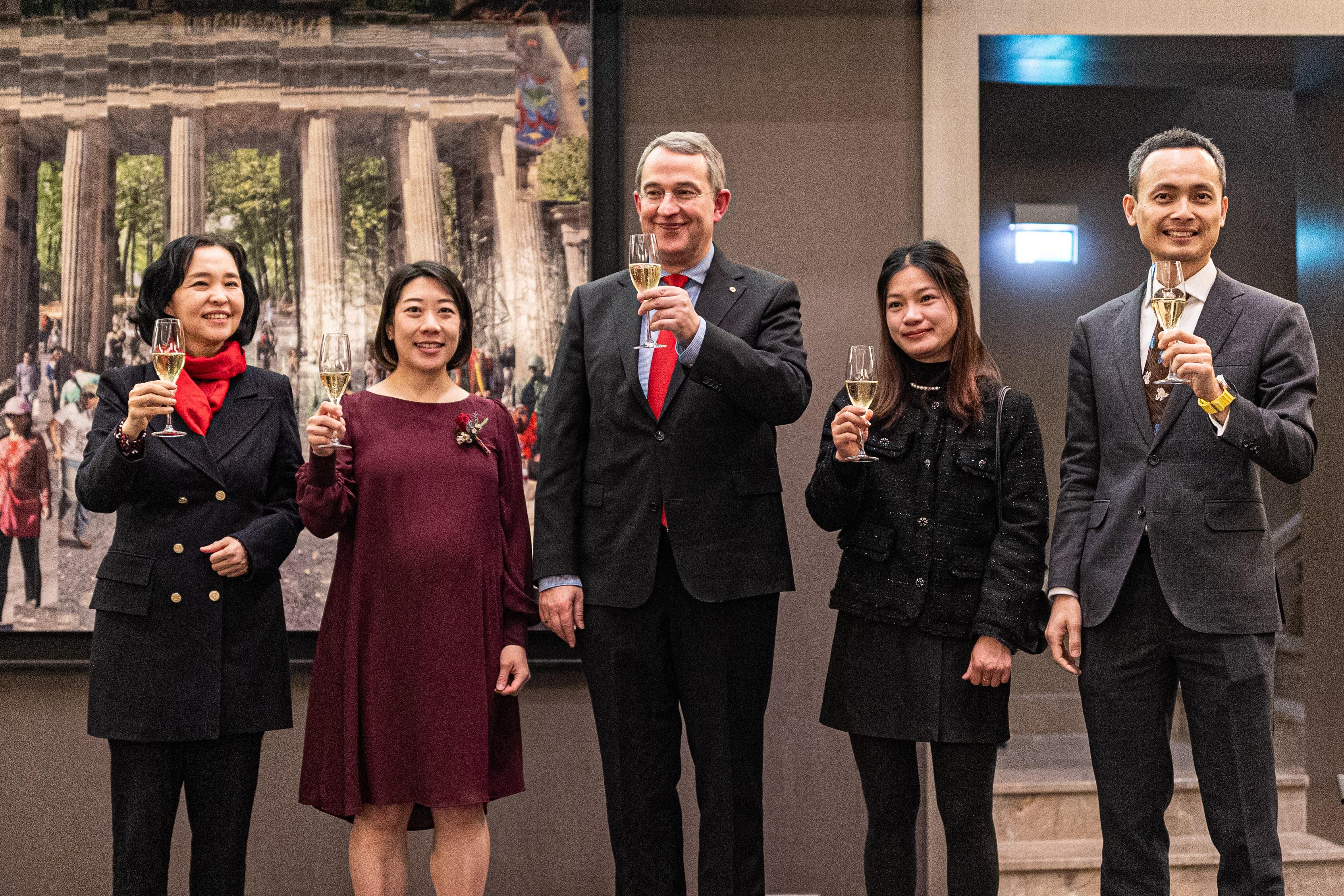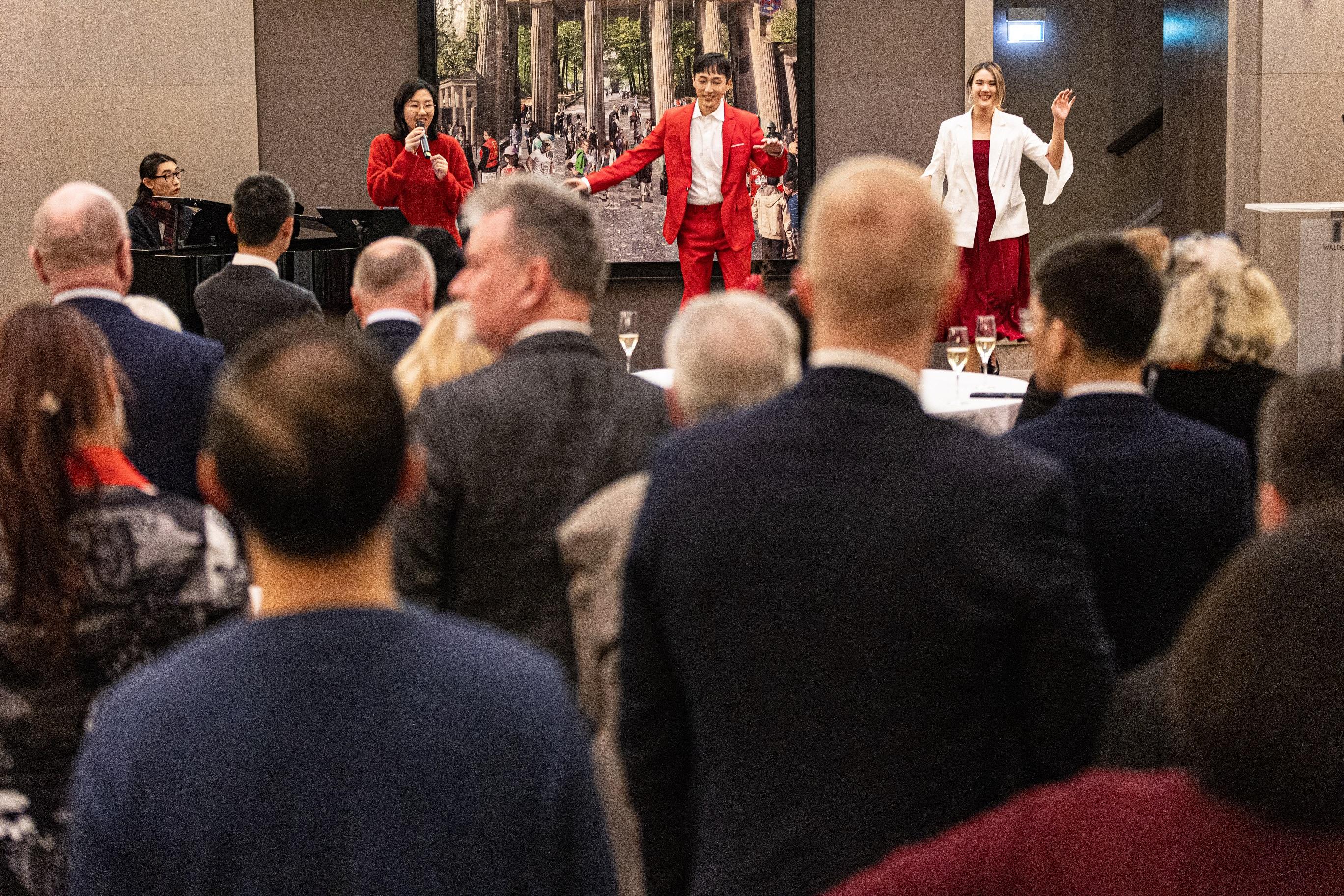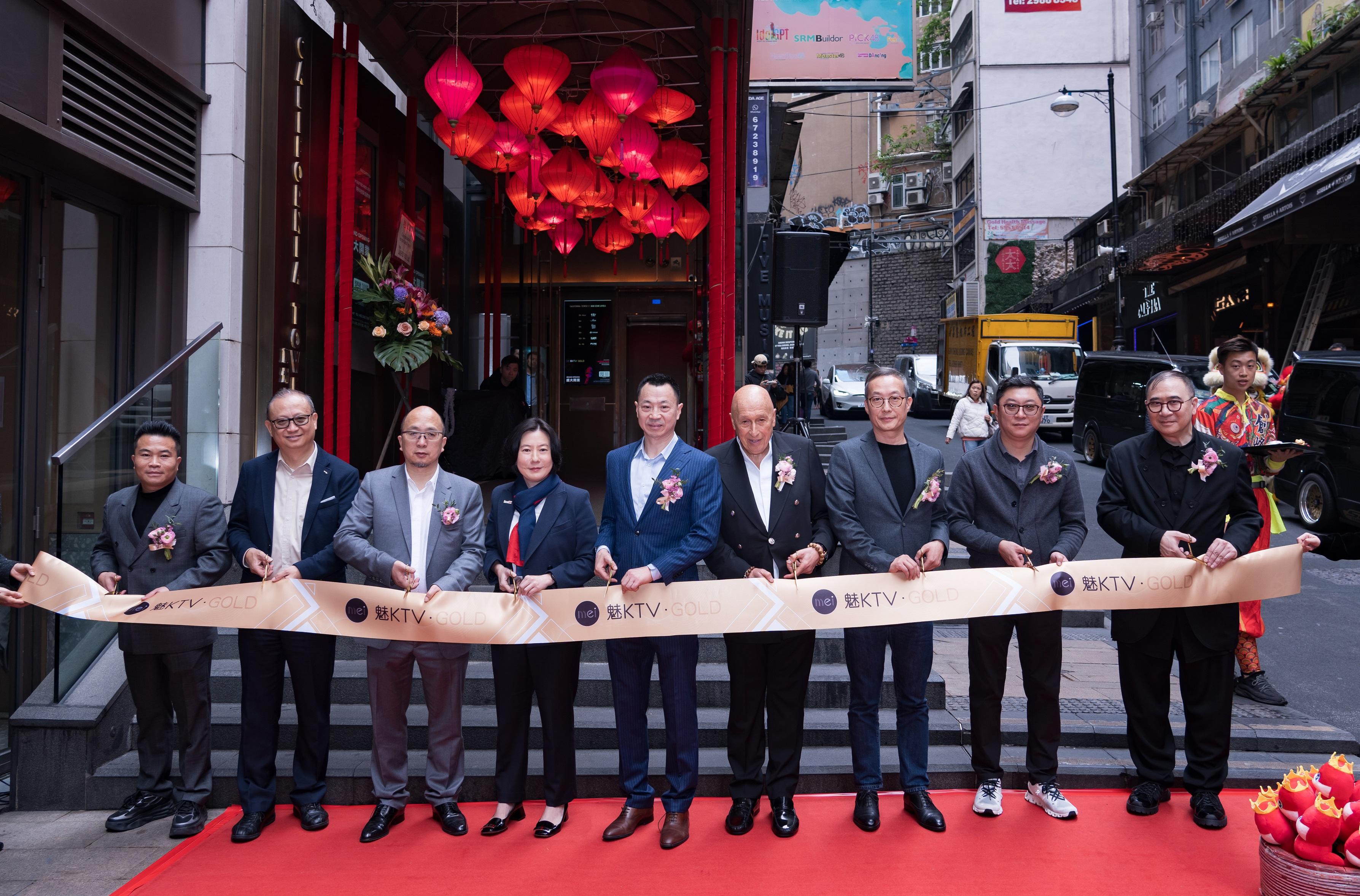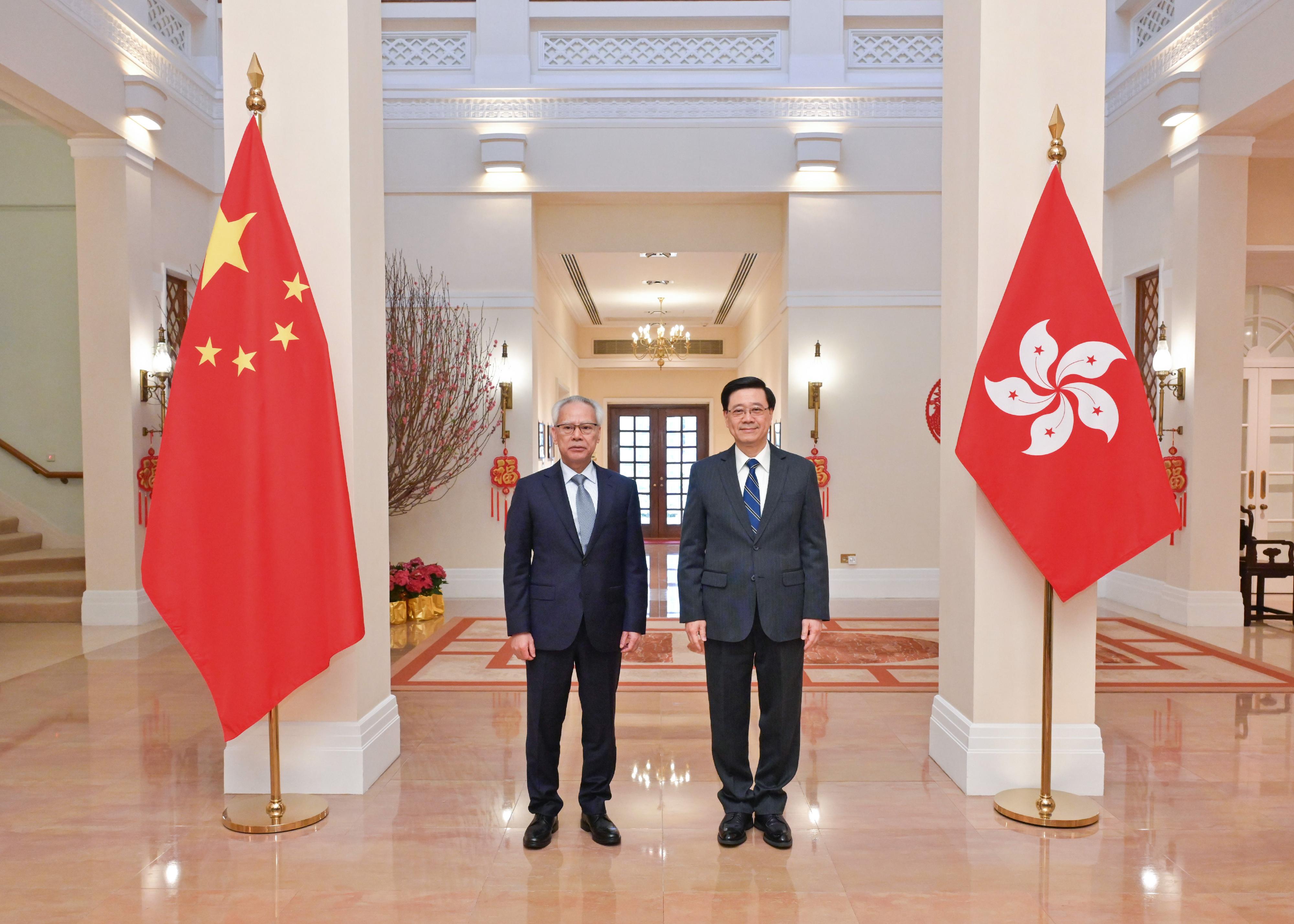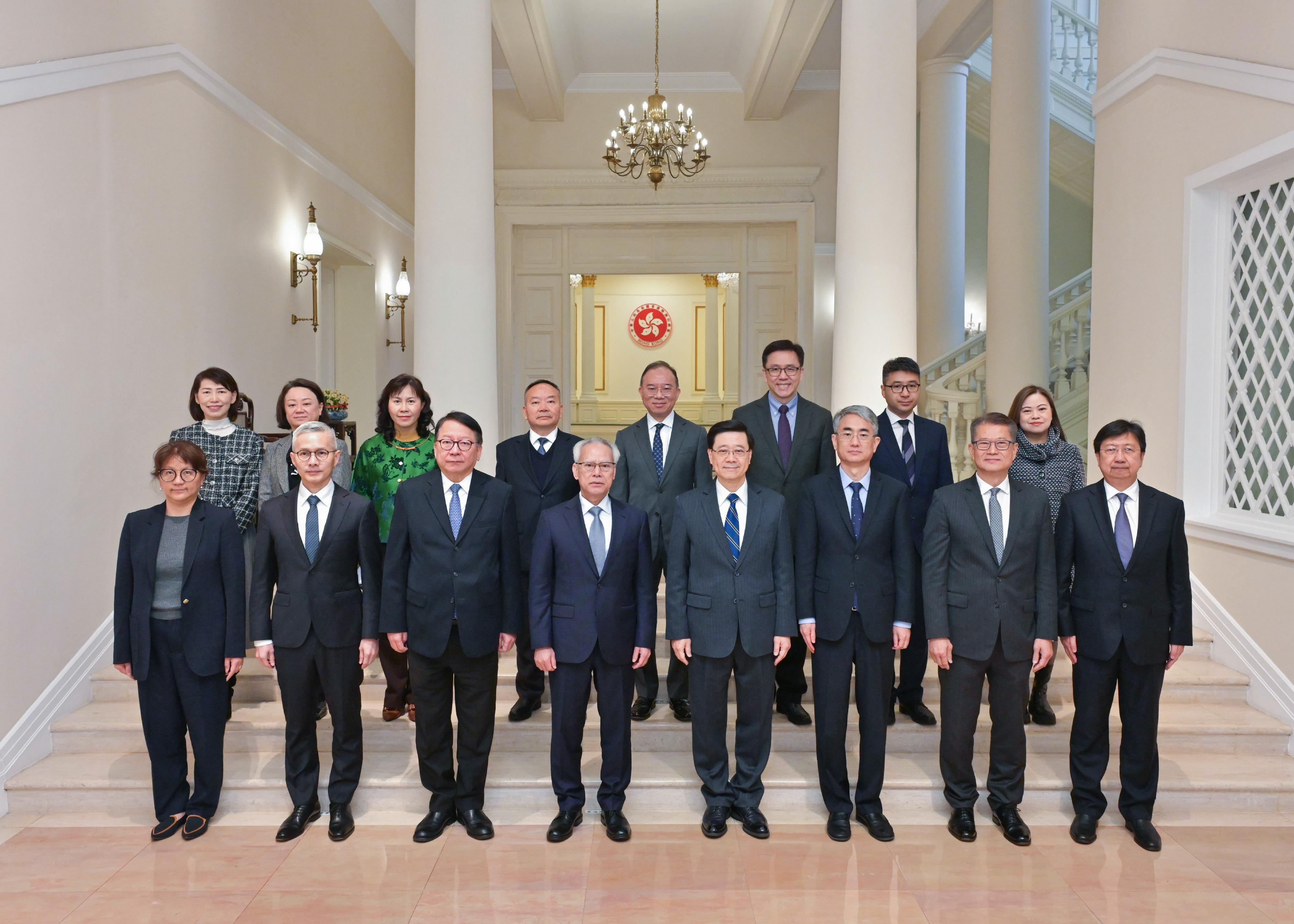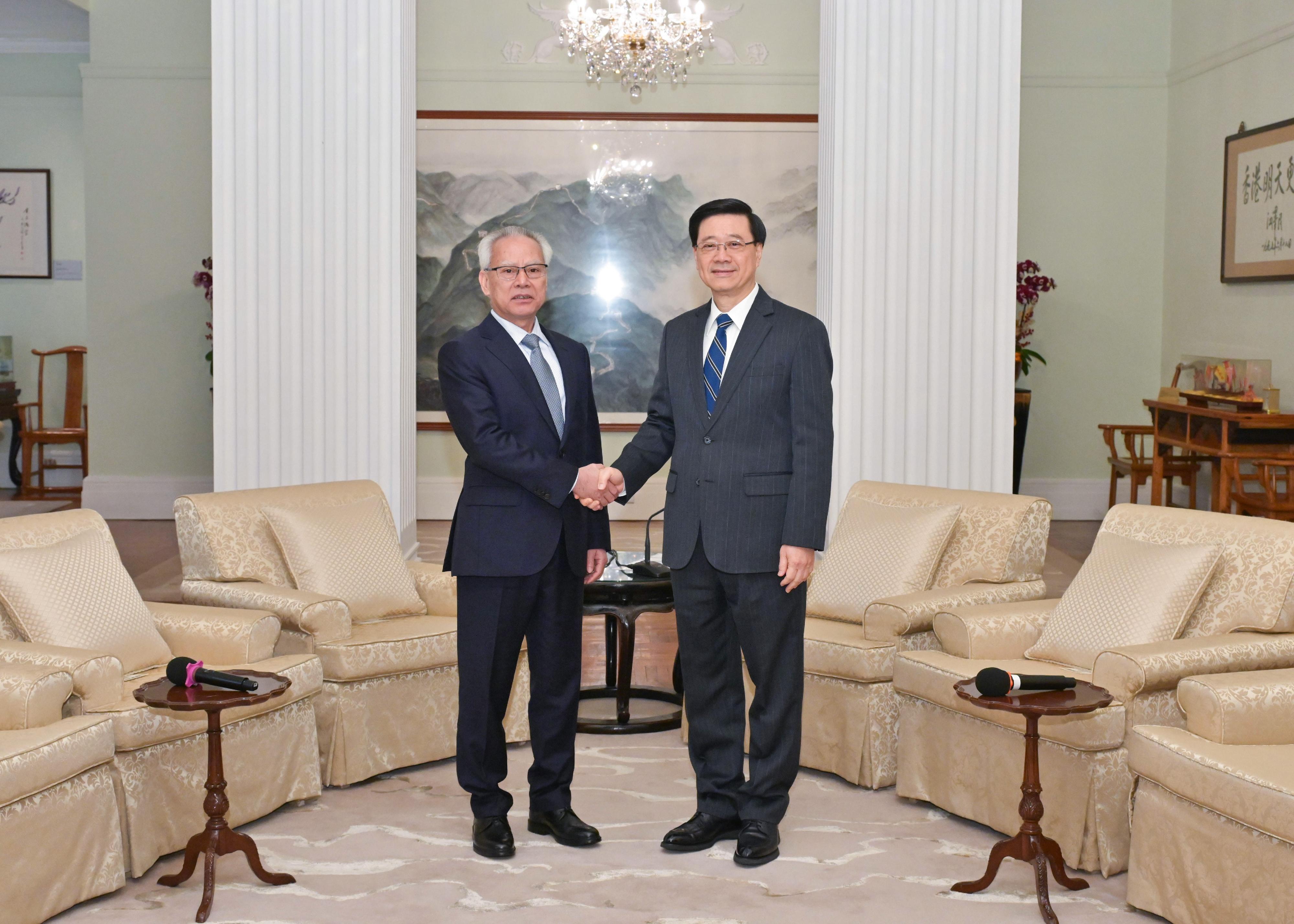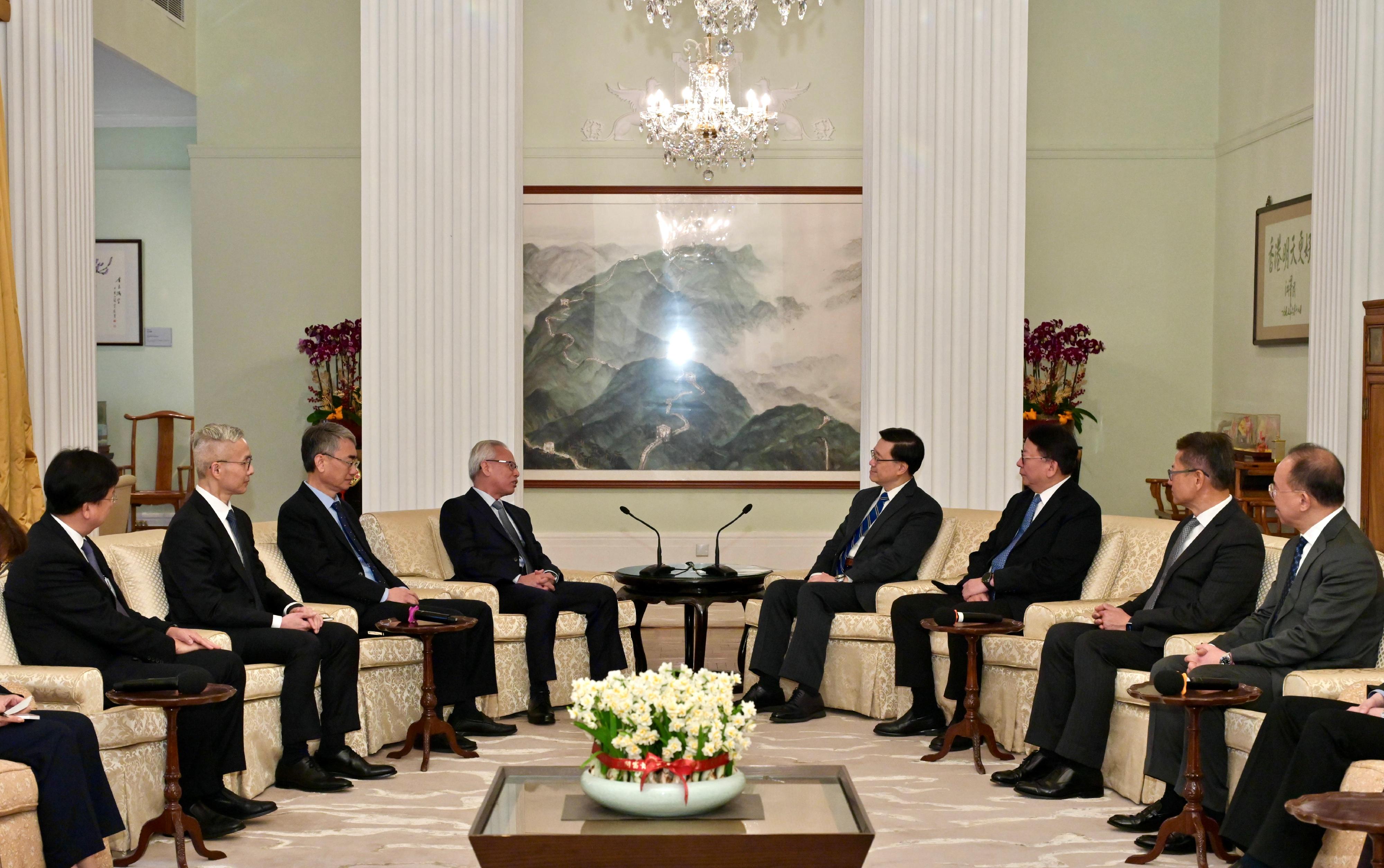InvestHK and HKCEA collaborated spring reception for Mainland enterprises in Hong Kong (with photos)
​Invest Hong Kong (InvestHK) and the Hong Kong Chinese Enterprises Association (HKCEA) collaborated a spring reception today (February 14) receiving over 1 000 guests in recognition of Mainland enterprises’ lasting commitment and contributions to the city, while celebrating the Chinese New Year.
The Chief Executive, Mr John Lee; the Director of the Liaison Office of the Central People’s Government in the Hong Kong Special Administrative Region (LOCPG), Mr Zheng Yanxiong; the Director-General of Investment Promotion at Invest Hong Kong, Ms Alpha Lau; and the Chairman of the HKCEA, Mr Wang Haimin, attended the event.
Addressing the guests, Mr Lee thanked the HKCEA for consistently uniting Mainland enterprises to contribute to Hong Kong’s economy, and serving the society in various fields. In the new year, the Hong Kong Special Administrative Region Government will continue to embrace change and strive for innovation, fostering Hong Kong’s stable development with positive momentum, while also driving the development of the Greater Bay Area and the Northern Metropolis for economic growth.
Mr Zheng said 2025 marks the closing year of the 14th Five-Year Plan and is a pivotal year for Hong Kong to accelerate its transition from governance to prosperity. The HKCEA, as an important platform for uniting Mainland enterprises in Hong Kong, will leverage Hong Kong’s unique advantages of enjoying strong support of the Central Government and being closely connected to the world, to drive the prosperity and stability for Hong Kong.
Mr Wang stated that over the past year, the country’s economy has continued to recover, and Hong Kong has made significant progress in governance and development, further strengthening its status as an international financial center. The HKCEA will actively support Hong Kong and strengthen trade co-operation between the two regions. It will take concrete actions to boost the “mega event economy” while supporting grassroots citizens and youth to grow.
The annual spring reception marks an important occasion for InvestHK and the HKCEA. The number of Mainland enterprise in Hong Kong has been on the rise. In 2024, InvestHK assisted 273 Mainland enterprises setting up or expanding in the city, which represents the largest source market in the department’s portfolio.


